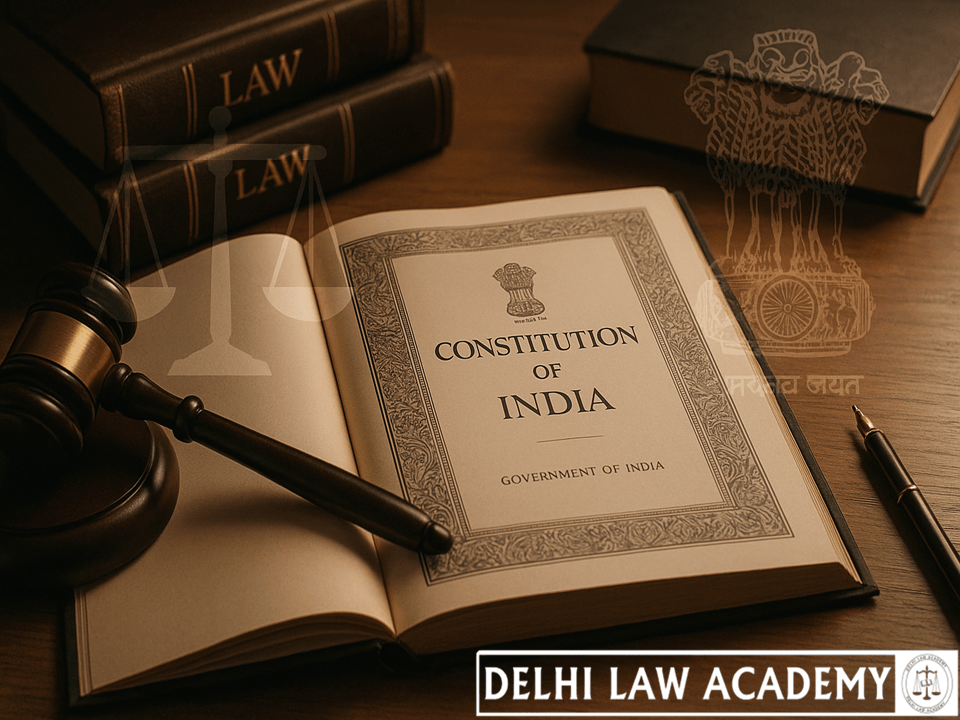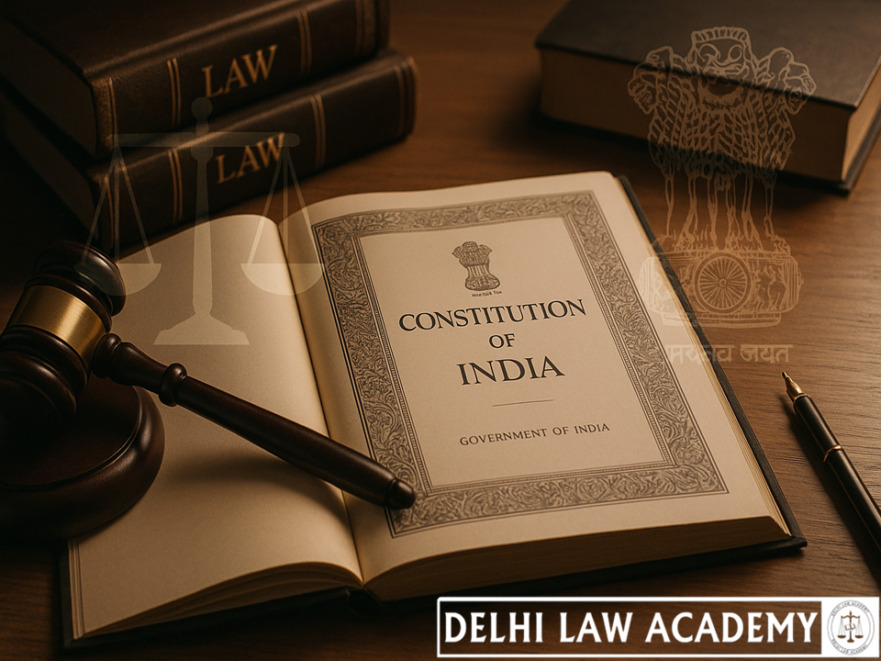
🌿 PANCHAYATI RAJ INSTITUTIONS – Constitutional Provisions
Delhi Law Academy Jaipur presents below for aspirants of RJS, DJS, PCS (J) and other Judicial Services throughout India a simplified Note on the Constitutional provisions relating to the Panchayati Raj Institutions.
📌 What does “Panchayat” mean?
• “Panchayat” means an institution of self-government constituted under Article 243-B for rural areas
There shall be reservation of seats in Panchayats for SCs, STs and Women.
📘 Constitutional Provisions
🔹 Article 243 — Definitions
• “Gram Sabha” means
o a body consisting of persons
o registered in the electoral rolls of a village
▪ comprised within the area of Panchayat at village level
• “Panchayat” means
o an institution, by whatever name called, of self-government
o constituted under Article 243-B for rural areas
🔹 Article 243A — Gram Sabha
• A Gram Sabha may
o exercise such powers and
o perform such functions at the village level
▪ as Legislature of a State may by law provide
🔹 Article 243B — Constitution of Panchayats
• There shall be constituted in every State
o Panchayats at
▪ village
▪ intermediate and
▪ district levels
• Panchayats at the intermediate level
o may not be constituted in a State
o having a population not exceeding twenty lakhs
🔹 Article 243C — Composition of Panchayats
• Legislature of a State may, by law, make provisions
o with respect to composition of Panchayats :
• Provided that the ratio between
o the population of territorial area of a Panchayat at any level and
o the number of seats in such Panchayat to be filled by election
• shall be the same throughout the State
• All the seats in a Panchayat shall be filled
o by persons chosen by direct election
o from territorial constituencies in the Panchayat area
• Representation may be provided for:
o Chairpersons of Panchayats at various levels
o MPs and MLAs representing that area
o Members of Council of States / Legislative Council
• Chairperson of Panchayats:
(a) village level — elected as per State law
(b) intermediate/district level — elected by, and from, elected members
🔹 Article 243D — Reservation of Seats
• Seats shall be reserved for SCs, STs
• Not less than one-third of these reserved seats → for women
• Not less than one-third of all seats (including above)
o shall be reserved for women
• Seats may be allotted by rotation
• Offices of Chairpersons shall be reserved for:
o SCs
o STs
o Women
• At least one-third of total Chairperson offices → for women
• State Legislature may also reserve seats
o for backward classes
📘 Stay Ahead with Delhi Law Academy!
Get access to free monthly current affairs, read our insightful blogs,
and explore free study resources prepared by experts at DLA Jaipur. 🚀
Frequently Asked Questions (FAQs)
📌 What is the meaning of Gram Sabha under Article 243?
Under Article 243, a Gram Sabha consists of all persons registered in the electoral rolls of a village
that falls within the area of a Panchayat at the village level. It works as the foundational democratic body
in the Panchayati Raj system.
🏛️ How are Panchayats constituted at village, intermediate and district levels?
Article 243B mandates that every State shall constitute Panchayats at the village, intermediate and
district levels. However, States with a population below 20 lakhs may choose not to create Panchayats
at the intermediate level.
👩🦰 What reservation rules apply to women in Panchayats?
Article 243D ensures that not less than one-third of all seats in Panchayats — including seats reserved
for SCs and STs — must be reserved for women. Additionally, one-third of all Chairperson offices across
all Panchayat levels must also be reserved for women.
🗳️ How are Panchayat seats and constituencies determined under Article 243C?
Every Panchayat area must be divided into territorial constituencies where the ratio between population
and the number of seats remains uniform across the entire Panchayat. All seats are filled through direct
elections from these constituencies.
👥 Who can be represented in higher-level Panchayats according to Article 243C(3)?
State Legislatures may provide representation in Panchayats to Chairpersons of lower-level Panchayats,
MPs, MLAs, and members of Legislative Councils who represent constituencies within that Panchayat area.
🎯 Can States reserve Panchayat seats for backward classes?
Yes. Article 243D(6) explicitly allows State Legislatures to make provisions for reservation of seats in
Panchayats for backward classes of citizens, in addition to reservations for SCs, STs and women.
Contact us
📍 Delhi Law Academy – Jaipur Branch
6C, Tower 2, Coaching Hub, Pratap Nagar, Jaipur – 302033
📞 Phone:
+91 9911916552
+91 8447285606
✉️ Email:
contactus@delhilawacademy.com

